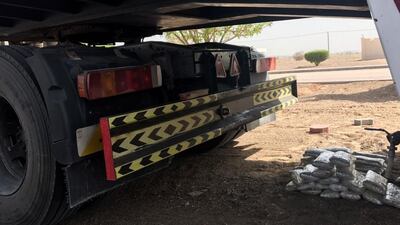A nationwide campaign is underway in Oman to warn young people about the dangers of drug use, as statistics showed more than 2,700 people were treated for addiction last year.
The month-long campaign — headed by the state-run National Committee for Narcotics and Psychotropic Substances — targeted schools and universities, where they held talks with pupils about the side-effects of drug dependency.
The Omani police have repeatedly warned parents to keep an eye on their children, saying young people who become addicted to drugs may also turn to dealing narcotics and also pressure their peers to take part in illegal activity.
The penalty for drug trafficking is 15 years in jail. Street drug dealers get ten years while drug users are not jailed but sent for rehabilitation treatment.
According to the ministry of health, more than 2,700 were treated in hospital for drug addiction in 2016, an 11 per cent increase from 2015.
The slogan — Life is wonderful, don’t spoil it with drugs — can be seen imprinted on the sides of public buses in the country, while posters have been placed in shopping malls, traffic light crossings and parks to create more awareness.
“Drug abuse is a menace and only persistent campaigns can drive the message home,” said Harith Al Harthy, a volunteer at the Hayatt Association, which helps drug addicts. “Both teachers and parents need to be vigilant to detect signs of drug abuse, but the most powerful tool to use in the campaign is social media.
“Young people communicate better with such tools rather than [read] what is pasted on buses and walls.”
In an effort to combat drug smuggling, the Omani authorities have in the last five years beefed up security at airports and other border crossings. However, patrolling all 1,700 kilometres of coastline is a challenge.
_____________________
Read more:
GCC countries collaborate to seize 150kg of marijuana and almost 2m amphetamines
Man held over drug-related murder in east Oman
_____________________
"Most drugs come in to the country by sea. So far, this year, the police have caught about 60 people trying to bring in drugs that way,” said a spokesman for the National Committee for Narcotics and Psychotropic Substances. “The best is being done to patrol the sea, but these drug smugglers don’t give up because it is a profitable business.”
He said that smugglers use speed boats to pick up the narcotics from international waters near Duqm, where fishing boats operated by international crime rings make the deliveries.
“They also use other coastal towns, like Sur in the east and Salalah in the south, to smuggle [drugs] since it is not as heavily patrolled as the Musandam Peninsula,” said Mr Al Harthy. “That’s why it is important for the local people who live in these coastal towns to stay vigilant and report any sign of smuggling.
“These areas need to be involved in this campaign, too.”
Earlier this year, the government said it will invest more than $200 million in the next five years to double the number of beds in the country's only rehabilitation centre and build more facilities.
Al Masarra Hospital is the only medical institution in the country that offers rehabilitation for drug addiction. When the hospital opened in Muscat in 2014, the drug rehab centre had just 50 beds. A year later, it doubled its capacity.

